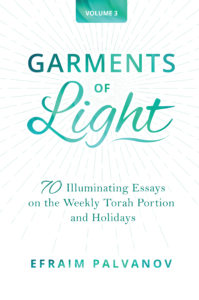This week’s parasha (in the diaspora) is Shlach, recounting the Sin of the Spies. When God subsequently punished the Israelites for their lack of faith, He said of that generation: “in this wilderness they will end, and there they will die.” (Numbers 14:35). The Zohar (III, 161b) explains that they died there in the wilderness, but not in the afterlife, meaning they did still merit to enter the supernal Garden of Eden. The Zohar further points out that the Torah specifically states their “corpses shall fall in this wilderness” (Numbers 14:32). The use of the word “corpses” serves to teach us that only their physical bodies—not their souls—would fall. God would destroy the evil inclination that ensnared their bodies into sin. The souls, however, would ultimately ascend to Heaven.
 Following this, the Zohar takes us on a long journey exploring the Heavenly Academies. One such yeshiva is presided over by Betzalel, the craftsman who put together the Mishkan. There is an academy of the Sages of the Mishnah, and another academy for the “masters of Scripture” (מָארֵי מִקְרָא), a place devoted to the study of Tanakh. Higher than these is the academy for the study of Aggadah (ie. Midrash), and the Zohar makes sure to point out that these luminous Aggadists are the ones who truly understand the Torah properly. (Intriguingly, the Zohar does not seem to describe an academy for the study of Talmud!)
Following this, the Zohar takes us on a long journey exploring the Heavenly Academies. One such yeshiva is presided over by Betzalel, the craftsman who put together the Mishkan. There is an academy of the Sages of the Mishnah, and another academy for the “masters of Scripture” (מָארֵי מִקְרָא), a place devoted to the study of Tanakh. Higher than these is the academy for the study of Aggadah (ie. Midrash), and the Zohar makes sure to point out that these luminous Aggadists are the ones who truly understand the Torah properly. (Intriguingly, the Zohar does not seem to describe an academy for the study of Talmud!)
Higher still is the yeshiva of Aaron, called the Yeshiva of Love (מְתִיבְתָּא דִּרְחִימוּתָא). Aaron leads his students through the Heavens, and they fly around “like eagles”. Aaron visits an even more exclusive academy, the yeshiva of Moses, called the Yeshiva of Light (מְתִיבְתָּא דִּנְהוֹרָא). Aaron’s students have to wait outside since only Aaron is allowed to enter, as well as any individuals Moses calls by name. Just like he did on Earth, up in his academy Moses is still wearing his special veil, his face being too luminous to behold. Even higher than this academy is the Yeshiva of the Firmament (מְתִיבְתָּא דִּרְקִיעָא), presumably presided over by the angelic Metatron.
Several pages later, the Zohar (III, 167b) tells us about the academies (“palaces”) of women. First is the school of Batya, the daughter of Pharaoh who adopted Moses. There are thousands of righteous women there learning with her. They learn “what they did not merit to learn in this world” since, until recent history, women were not expected to learn Torah. Meanwhile, there are many more thousands of female souls learning with Serach, the daughter of Asher (for more on her, see ‘The Incredible Story of Serach bat Asher’ in Garments of Light, Volume One). Here they focus on learning the secrets of the Torah’s mitzvahs, and the deeper reasons for the commandments.
The third female academy is full of myriads of women, and they don’t seem to do much learning here but rather spend their time in meditation, song, and praising God, alongside many angels. The leader here is Yocheved, mother of Moses. Opposite her academy is a similar palace belonging to Deborah the Judge and Prophetess. She, too, leads the women in song and prayer. In addition to these, there are four palaces that are concealed, belonging to each of the four Matriarchs. These are called the “palaces of the trusting daughters” (הֵיכָלִין דְּבָנוֹת בּוֹטְחוֹת), but they are too lofty to be described.
The Zohar does divulge a deep secret here. While during the day the male and female souls are segregated in their various academies and palaces, the soulmates do reunite at night:
Every night they get together, since the time of coupling is at midnight, both in this world and that world. The coupling of that world is accomplished by the adherence of one soul to the other, light with light. The coupling in this world is body to body. Everything is as it should be: a kind with its kind, a match with its match, body to body; and in the other world, it is light with light… The union in that world produces more fruit than the coupling in this world. When they pair up in the pairing in that world, with their unified desire, and when the souls cling one to another, they produce fruit. And lights emerge and lamps are produced. These are the souls of those that convert…
The souls of Jewish converts are produced from the spiritual unions of the righteous souls above!
Going back to our parasha, the Zohar tells us that despite what we might read in the Torah, the generation of the Exodus and the Wilderness was indeed a very righteous one. The Zohar (III, 168b) says there will never be another generation as worthy as they until the coming of Mashiach. And at that time, the Wilderness generation will merit to be the first to rise in the Resurrection of the Dead. May we merit to see it soon.


